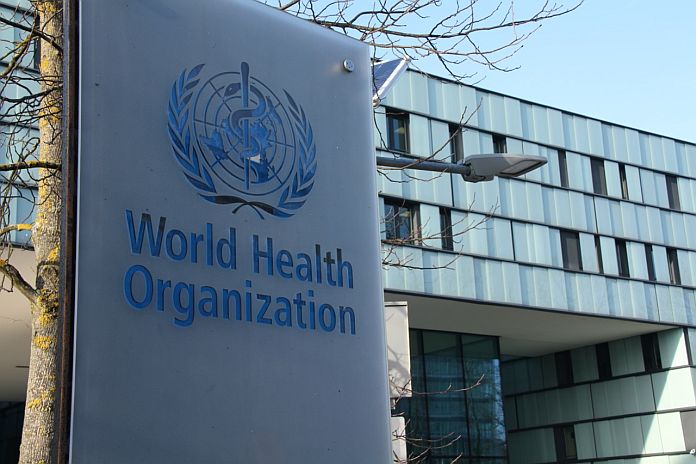By Caribbean News Global ![]()
GENEVA, Switzerland — The World Health Organisation emphasizes the need to note that “the vaccine’s benefits continue to outweigh its risk, and the vaccine can continue to be administered while investigation of cases of thromboembolic events is ongoing.”

In a statement, Wednesday March 17, on AstraZeneca COVID-19 vaccine safety signals, the WHO said:
“Some countries in the European Union have temporarily suspended use of the AstraZeneca COVID-19 vaccine as a precautionary measure based on reports of rare blood coagulation disorders in persons who had received the vaccine. Other countries in the EU – having considered the same information have decided to continue using the vaccine in their immunization programmes.
“Vaccination against COVID-19 will not reduce illness or deaths from other causes. Thromboembolic events are known to occur frequently. Venous thromboembolism is the third most common cardiovascular disease globally.
“In extensive vaccination campaigns, it is routine for countries to signal potential adverse events following immunization. This does not necessarily mean that the events are linked to vaccination itself, but it is good practice to investigate them. It also shows that the surveillance system works and that effective controls are in place.
“WHO is in regular contact with the European Medicines Agency and regulators around the world for the latest information on COVID-19 vaccine safety. The WHO Global Advisory Committee on Vaccine Safety is carefully assessing the latest available safety data for the AstraZeneca vaccine. Once that review is completed, WHO will immediately communicate the findings to the public.
“At this time, WHO considers that the benefits of the AstraZeneca vaccine outweigh its risks and recommends that vaccinations continue.”
On March 12, 2021, the Caribbean Public Health Agency issued a statement concerning COVID-19 vaccines reassuring member states that the Caribbean Regulatory System (CRS) applies its reliance procedure to verify vaccines with emergency use authorization granted by stringent regulatory authorities of reference.
“Adverse reactions that happen following immunisation with any vaccine need to be fully investigated to rule out various factors, for example, concomitant illnesses, progression of a disease, and batch assessment, before a final decision is made by the health authorities, CARPHA’s update said. “It must be noted that the vaccine being used in the Caribbean is not the same version or batch as the one in Europe.”
Related: CARPHA updates region on COVID-19 vaccines and variants
Meanwhile, Jamaica On March 15, is the first country in the Caribbean to receive COVID-19 vaccines through the COVAX Facility.
Jamaica received 14,400 doses of COVID-19 vaccines through the COVAX Facility, a global effort between the Coalition for Epidemic Preparedness Innovations (CEPI), Gavi, the Vaccine Alliance Gavi, UNICEF, the Pan American Health Organization (PAHO) and the World Health Organization (WHO).
The arrival marks a historic step toward ensuring the equitable distribution of COVID-19 vaccines worldwide, in the largest vaccine procurement and supply operation in history. This delivery is part of the first phase of deliveries for Jamaica, and more vaccines are expected to arrive successively during 2021. According to the first round of COVAX allocations, Jamaica is expected to continue receiving doses through May until it reaches 124,800, the amount specified by COVAX.
The 15 Caribbean countries that will receive just over 2.1 million doses of COVAX vaccines by May include Antigua and Barbuda, Bahamas, Barbados, Belize, Dominica, the Dominican Republic, Grenada, Guyana, Haiti, Jamaica, St Kitts and Nevis, Saint Lucia, St Vincent and the Grenadines, Surinam, and Trinidad and Tobago. Six of these countries (Dominica, Grenada, Guyana, Haiti, Saint Lucia, and St Vincent & the Grenadines) will receive the vaccines free of charge.
Related: Jamaica becomes first country in the Caribbean to receive COVID-19 vaccines through COVAX Facility





